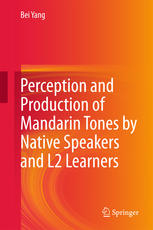

Most ebook files are in PDF format, so you can easily read them using various software such as Foxit Reader or directly on the Google Chrome browser.
Some ebook files are released by publishers in other formats such as .awz, .mobi, .epub, .fb2, etc. You may need to install specific software to read these formats on mobile/PC, such as Calibre.
Please read the tutorial at this link: https://ebookbell.com/faq
We offer FREE conversion to the popular formats you request; however, this may take some time. Therefore, right after payment, please email us, and we will try to provide the service as quickly as possible.
For some exceptional file formats or broken links (if any), please refrain from opening any disputes. Instead, email us first, and we will try to assist within a maximum of 6 hours.
EbookBell Team

4.7
76 reviewsTones are the most challenging aspect of learning Chinese as a second language, and L2 learners’ perceptual categories differ in important and fascinating ways from those of native speakers. This book explores the relationship between tone perception and production among native speakers and non-native learners as illustrated in the experiments the author conducted with native speakers, true learners and heritage learners, all of whom were tested on their ability to produce tones naturally and to perceive 81 synthesized tones in various contexts. The experiments show that each group processes tones differently with regard to both register (tonal level) and contour (tonal shape). The results also reveal how three types of cues – acoustic, psychological and contextual – influence non-native speakers’ tone perception and production.